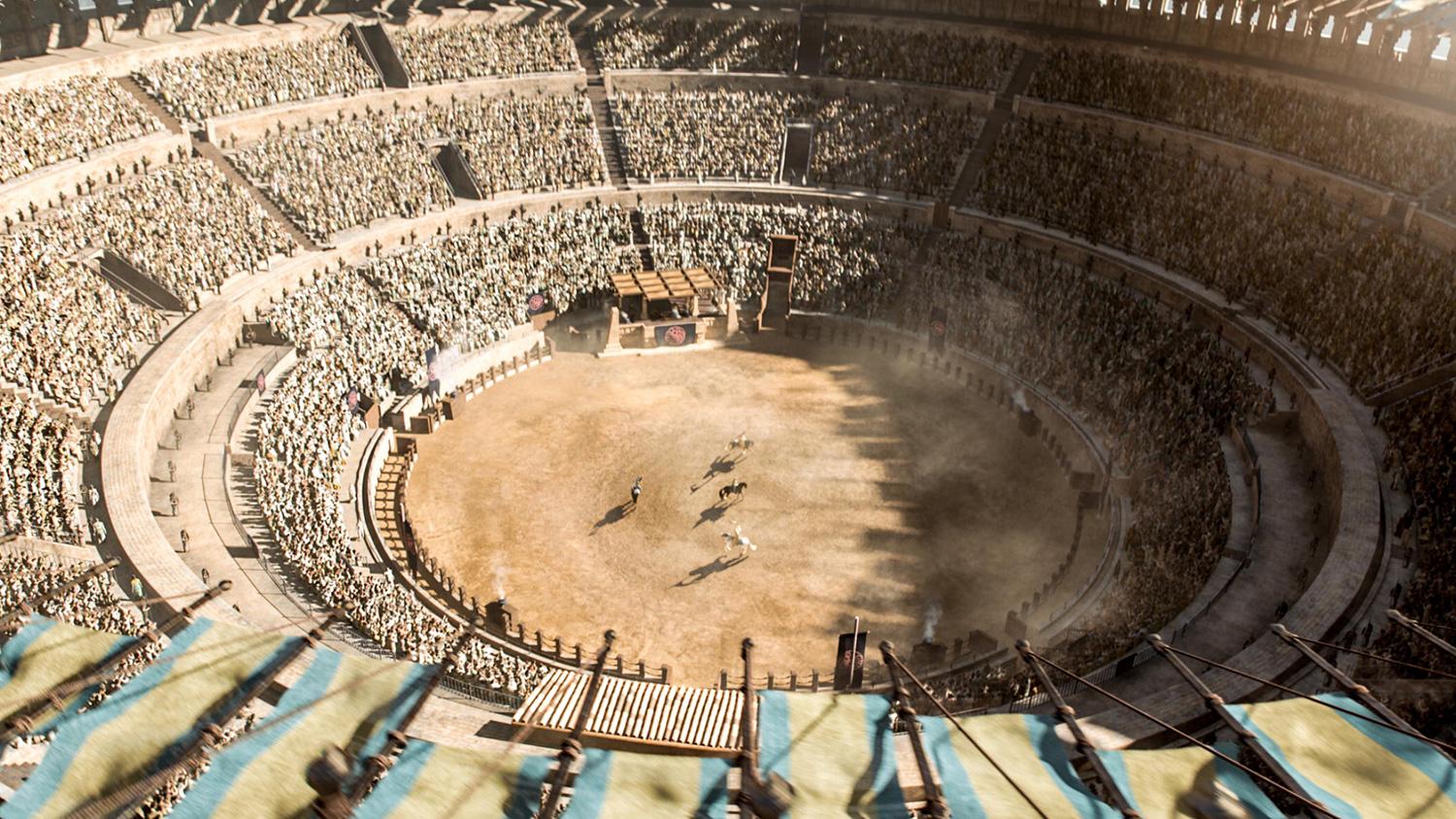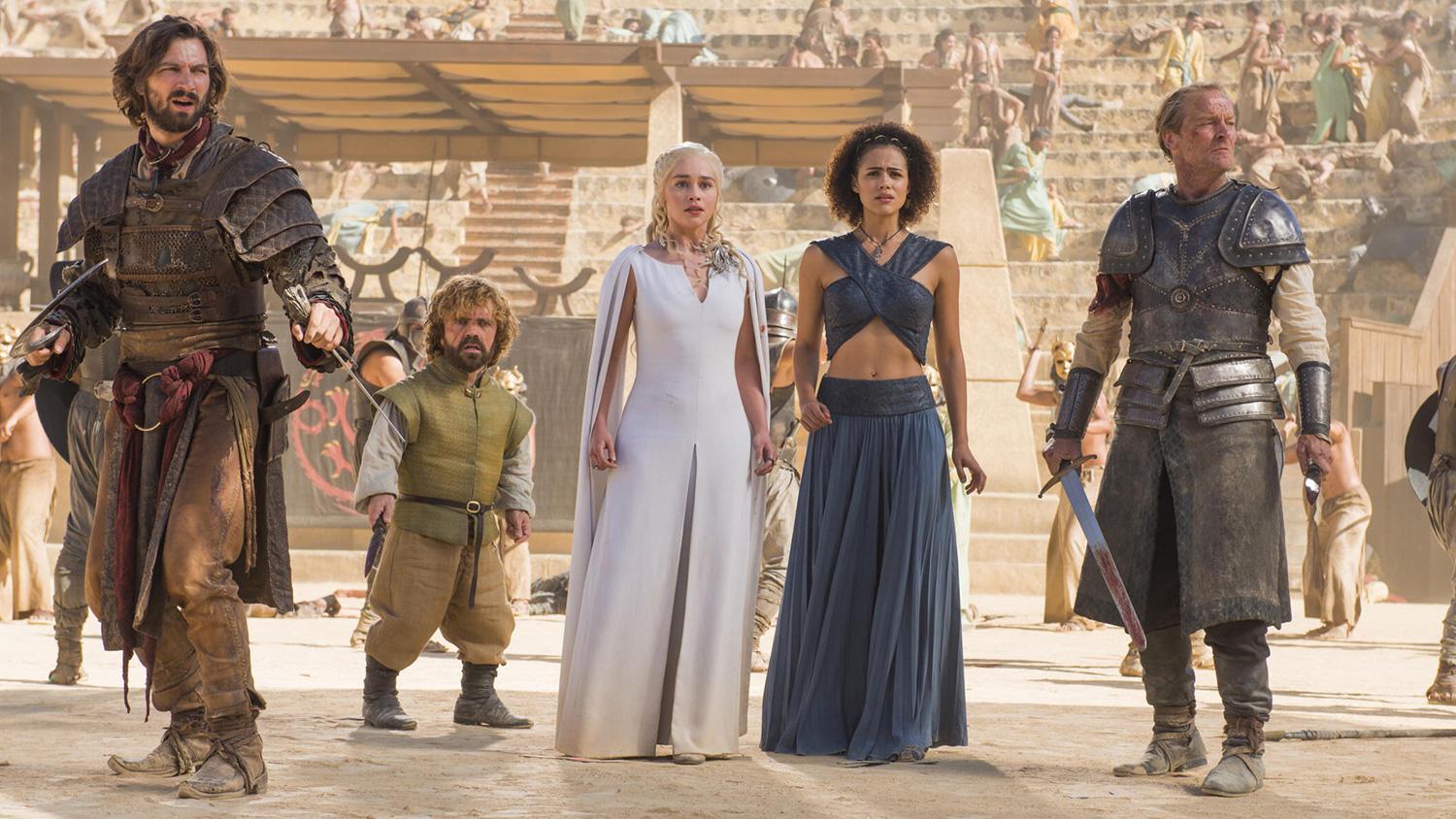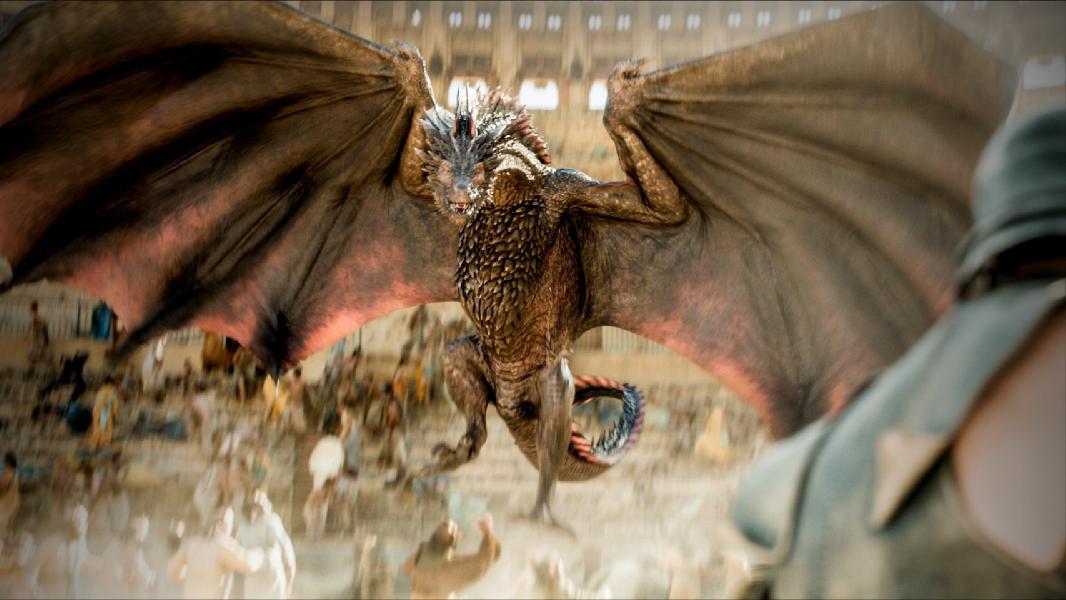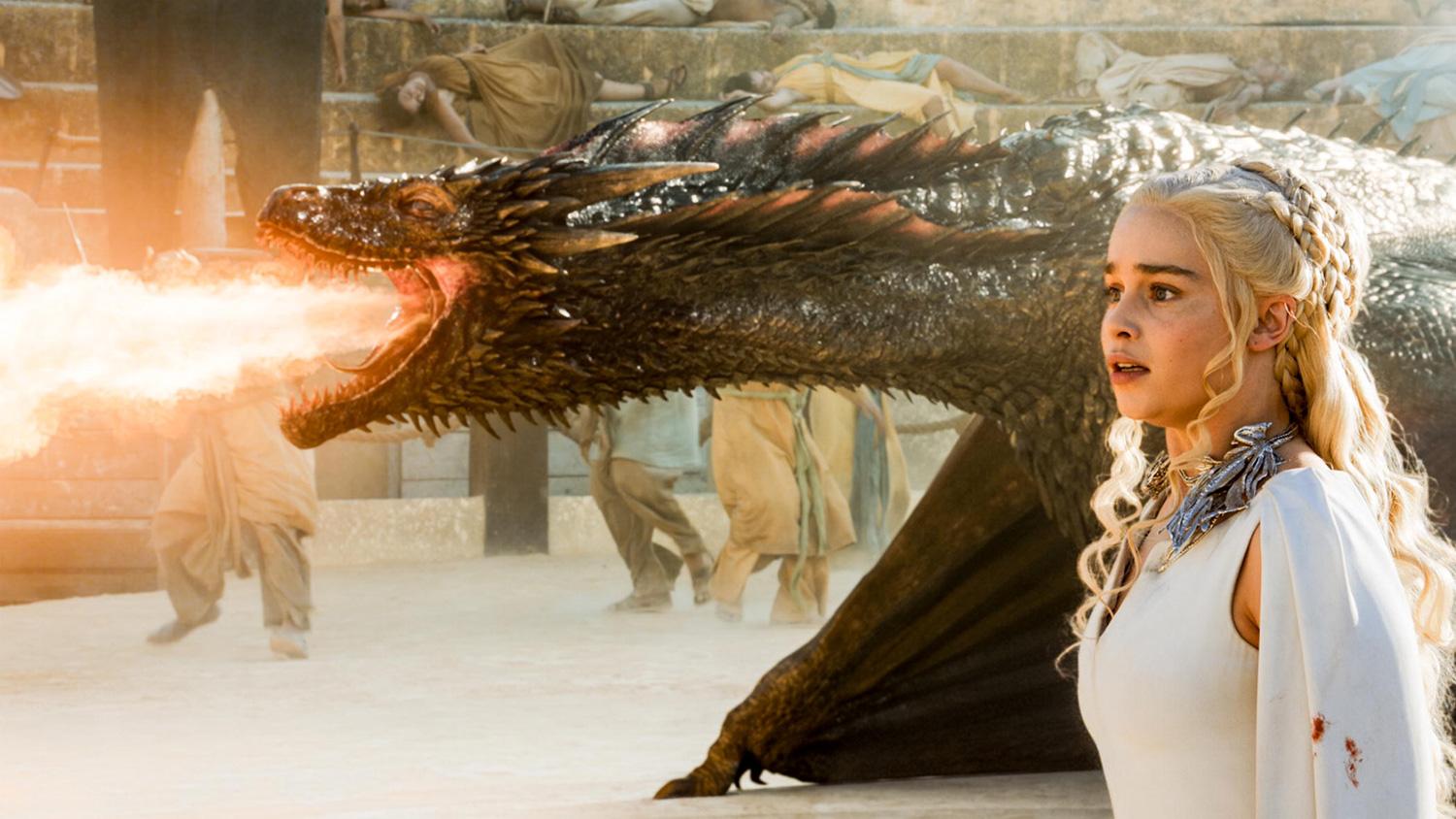“There has always been more than enough death in the world for my taste. I can do without seeing it in my leisure time.”
Leave it to Tyrion Lannister to call Game of Thrones viewers out on their bloodlust. The Imp sits beside Daenerys Targaryen, Daario Noharis, and Hizdahr zo Loraq during the grand reopening of Meereen’s fighting pits, commenting on why he’s not a fan of the blood sport. From writers David Benioff and D.B. Weiss’ fingertips through Tyrion’s lips to your ears, hopefully the message is loud and clear: Game of Thrones is more violent than most any other show, and yet, it wants you to view the violence critically as Tyrion does, not as one of the many brain-dead patrons of the great Meereen arena who find themselves butchered by episode’s end.

Take what happens in Stannis Baratheon’s camp, for instance. The man with an unquenchable thirst for the Iron Throne finally crosses an uncrossable line in this week’s episode, when his camp’s already thin food stores and supplies are further decimated in an ambush led by Ramsay Bolton. Unless he takes some desperate measures, would-be King Baratheon’s cause is doomed in the face of the raging winter — leading him to take the most desperate measure of all: Sacrificing his own daughter to the Lord of Light, at Melisandre’s behest.
Stannis sends the morally grounded Davos Seaworth back to the Wall to enlist Jon Snow’s help in the fight, with the actual purpose of getting his most trusted advisor out of sight before embarking on a morally bankrupt mission. With Davos gone, Stannis is free and clear to offer his daughter Shireen up to R’hllor, watching with icy determination as she screams and screams and burns and burns. Melisandre has long advocated for this sacrifice thanks to the power of the royal blood flowing through Shireen’s veins, and finally, Stannis signs off on the idea. But is it just a sickening moment for gore galore’s sake? Or is the scene here to force viewers to recognize that even someone like Stannis, a man who has been on the side of justice more often than not, is capable of utter monstrosity?
In Braavos, another character contemplates violent vengeance, as Faceless-Woman-in-Training Arya Stark encounters one of the many men on her famous kill list: Meryn Trant, Joffrey Baratheon’s former bodyguard, the man who killed Arya’s mentor Syrio Forel. Meryn is accompanying Mace Tyrell in Braavos, and more than that, he’s spending his leisure time in brothels, paying top dollar for a very specific kind of companion — the kind who’s as young as Arya, if not younger.
On one hand, we root for Arya to seal the deal and cross Meryn off her list, not just because it’s one less pedophile in the world, but also because Arya’s pain is our pain, and the men and women who brought ruin to House Stark deserve our ire. On the other hand, we want Arya to cool her jets, because killing Meryn means violating the House of Black and White’s quintessential “I am No One” rule, and also because another vengeance kill only drags Arya deeper into the heart of darkness. At what point does she reach the point of no return?
In Dorne, Game of Thrones inches closer to its own point of no return, in the sense that the home of the Martells remains unspeakably boring. Jaime convinces Prince Doran to spare his life and allow him to return to King’s Landing with Myrcella, her fiancé Trystane, and a broken-jawed Bronn in tow. Even Ellaria Sand seemingly gives Jaime a pass, after spending most of her season five screen time railing against the Lannisters. The moral of the story? Your guess is as good as mine.
But Tyrion’s commentary on violence is at its sharpest in the fighting pits of Meereen, as Jorah Mormont survives improbable odds against several different soldiers, living long enough to prevent an assassination attempt on Daenerys Targaryen’s life. But that’s just the start of things, as several Sons of the Harpy emerge from the arena stands. Donning masks and brandishing knives, they slaughter everyone in sight, with the aim of putting an end to Meereen’s new queen for good.
Dany’s entourage of Jorah, Daario, Tyrion and Missandei fight through the carnage until they reach the center of the arena, surrounded at all sides, their fates all but certain — if not for the arrival of Drogon, the furious flame-spewing beast that lands with a thud and takes out all Harpies in sight. Daenerys finally fulfills her destiny as a dragon-riding Targaryen, mounting Drogon and flying away for parts unknown, leaving her awestruck fellows behind to untie the Meereenese knot on their own.
As the Queen of Meereen and Khaleesi of the Great Grass Sea rides off into the sky, we’re left with Tyrion’s slack-jawed shock on our face, so much so that his comments on violence are little more than a lingering worm in the ear, wiggling around for attention. But as we prepare for next week’s season finale, perhaps there’s no greater place for Tyrion’s take on the world than Daenerys’ current dragon’s-eye-view.








